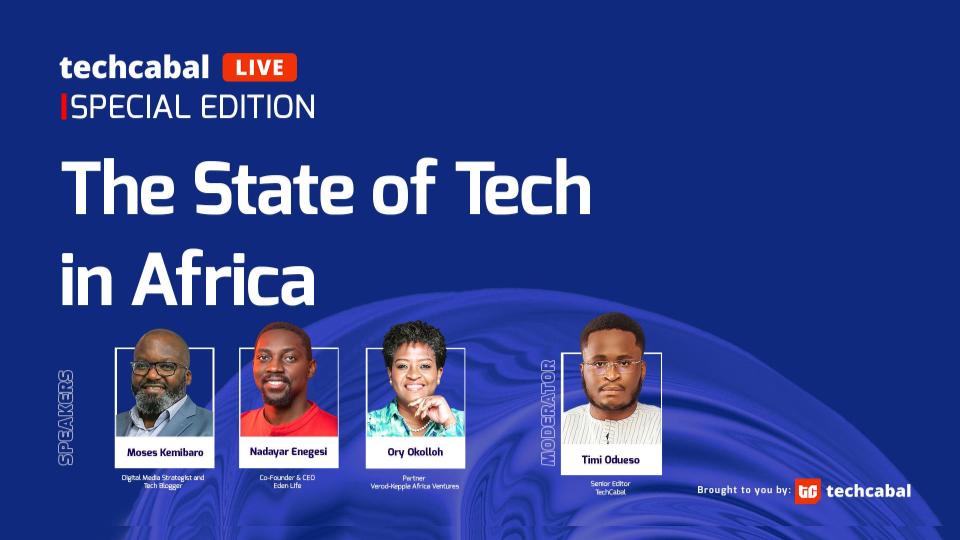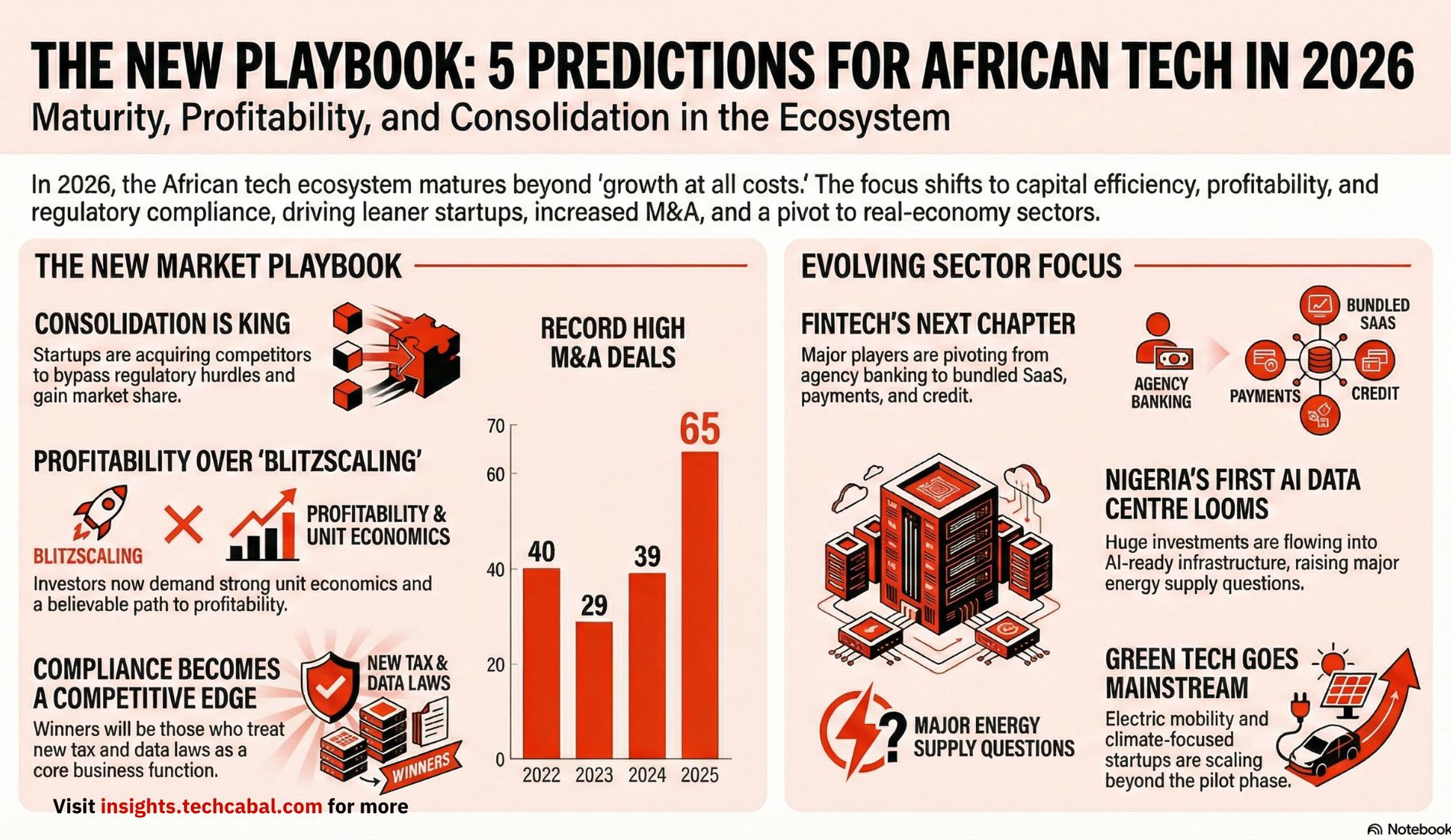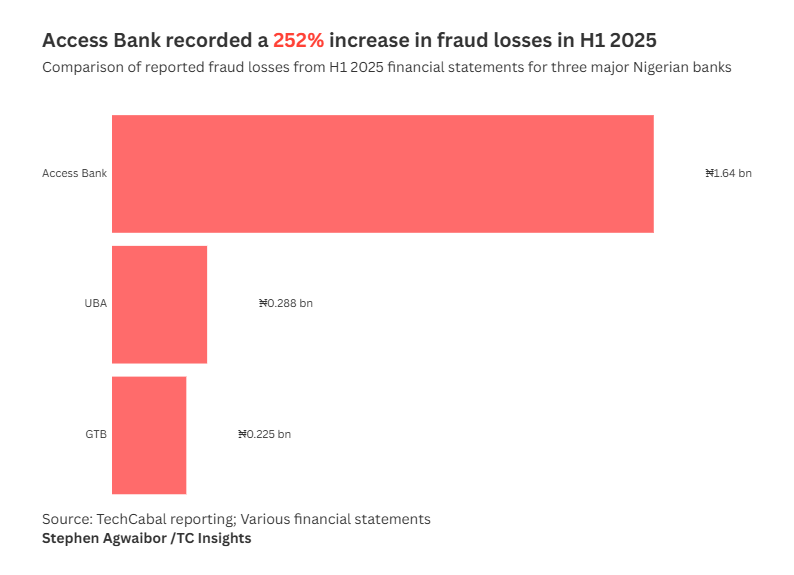On Friday, January 26, TechCabal Insights released its much anticipated State of Tech in Africa Report for Q4, 2023. The report shed light on the realities of funding in 2023 with insights on how investors and players in the tech ecosystem can navigate through the funding winter and come out thriving.
To launch the report, TechCabal Insights had its first TC Live event of the year hosted by Timi Odueso, TechCabal’s Senior Editor, Newsletters, and featuring Mobolaji Adebayo, analyst at TechCabal Insights; Moses Kemibaro, a digital media strategist; Nadayar Enegesi, co-founder and CEO of Eden Life, and Ory Okolloh, partner at Verod-Kepple Africa Ventures.

The event was packed with highlights and action points that serve as an invaluable resource for participants. Here are three that stood out for us:
2023 was a reality check—leave your entitlement at the door
For Nadayar, the silver lining behind the 2023 investment cloud was that it served as a reality check for investors. While acknowledging that most information is private and within companies, he noted the challenges startups face, including regulatory threats, macroeconomic headwinds, and funding cuts.
He commended the resilience of African founders despite limited global funding. As challenging as things were, he insisted that “it could have been a bigger bloodbath.” Nadiyar advised on the need for companies to reinvent themselves, a sentiment that Moses shared when he noted that companies are pivoting, with a stronger emphasis on more B2B and less B2C models. “We should be thinking of how to prioritise profitability and sustainability and move away from an entitlement mentality towards funding.”
Debt funding is great for African tech—but it should be localised

Last year, there were 45 recorded debt deals in Africa, and for Ory, it’s a good thing noting, “While debt funding is sector agnostic, I think it’s a great development. However, there are challenges in how it’s currently structured.” Ory believes there’s a mismatch of instruments since much of the equity funding could be structured as debt instead, particularly working capital and assets, because it otherwise creates a premature dilution for founders who have no skin left in the game by the time they get to Series A or B.
Another challenge she notes is that the debt coming in is in US dollars, which is tough in light of multiple devaluations affecting local currencies. She maintained that rethinking around exploring local currency debt will help grow startups while protecting them.
An exit is an exit—take whatever wins you can
As much as it’s great to hear news about emerging tech unicorns, current realities require a different focus. Investors consider mergers and acquisitions a lifeline, with exits becoming rarer. This point was expanded on by Ory, who said, “It doesn’t matter how big an exit is, an exit is an exit. It might not be the 10x you hoped for, and it could even be a down round, which constitutes a challenge. But you must remember that this is a tough environment. So, if this merger and acquisition option gives a founder time to breathe, go for it.”
She added that for earlier investors, this option creates liquidity. “In a few years, people will say VC doesn’t work in Africa because we have not had enough liquidity. Remember, these are people who are putting in money expecting a return. Maybe what will change is that the return expectations shift, but we don’t want to be in a place where you put your money in and get nothing out.”
Ory also tasked us with building transparency and what she calls an “M&A muscle” to make it more viable. She suggested that TC Insights build an index of M&As and secondary markets that could be a helpful resource for investors.
Other interesting subjects were discussed around expansion strategies, data protection, artificial intelligence, regulation and compliance, consumer behaviour, and switching costs. You can catch up on the full event by clicking this link.









